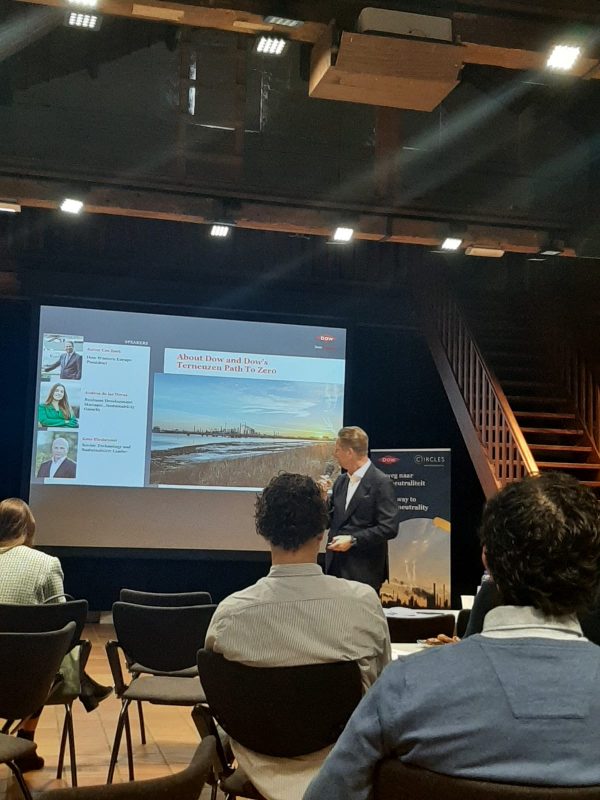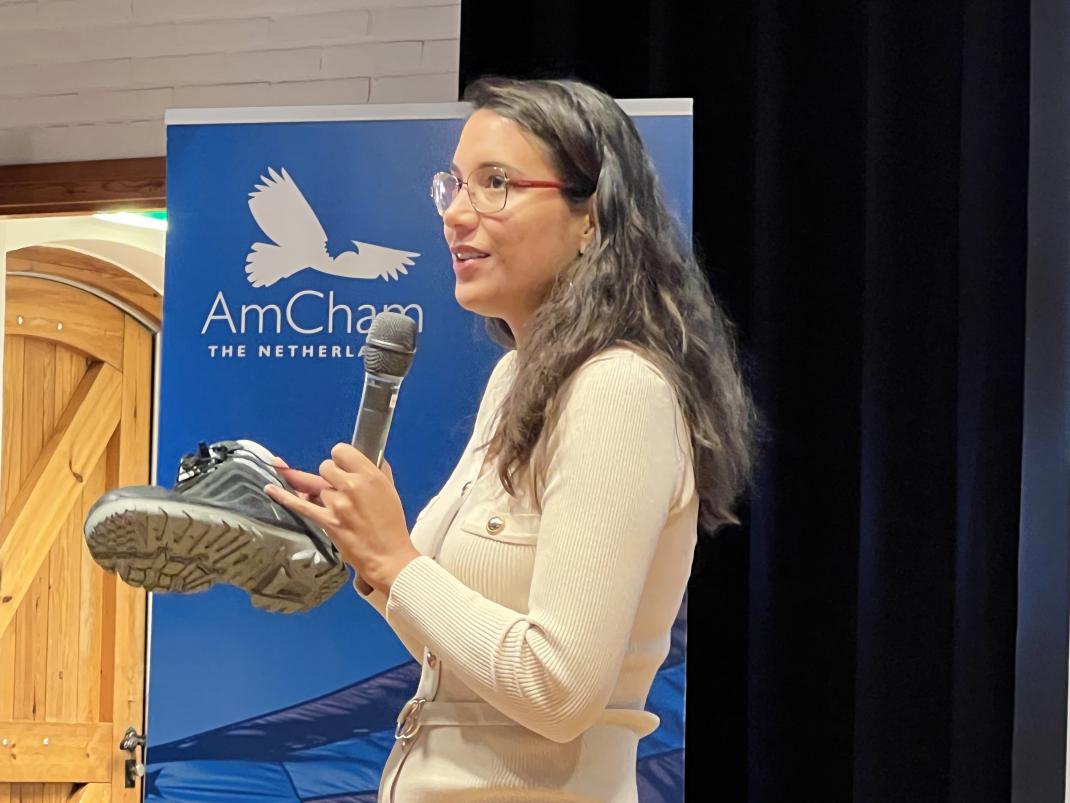Transforming conventional business models through stakeholder inclusion
Workshop on inclusion of the stakeholders
On 11 October 2022, Global Compact Network Netherlands hosted a workshop on stakeholder inclusion for young professionals from a number of leading Dutch companies at a visit to DOW Chemical in Terneuzen, organized by our partner AmCham.
Constantly changing business environments and emerging uncertainties worldwide are causing organizations to rethink who they work with and how. Both academia and policy makers emphasize the need to shift from a shareholder corporate governance model to an inclusive stakeholder model.
Take home messages
During this workshop, Global Compact Network Netherlands introduced an innovative and globally applicable stakeholder inclusion model that covers complex variables and indicates how to increase companies’ contribution to the SDGs. Through a simulation game, led by our Participant Engagement Manager Mónica Pascual, young professionals experienced what it is like for different stakeholders to balance their own interests with the overarching goal of being more sustainable., moving from an opportunistic attitude to stewardship.
The young professionals shared several key takeaways from the workshop:
- To move forward and create a more sustainable future, we need to be transparent and practice honest communication with our stakeholders.
- Stakeholder inclusion around sustainability is more likely to be successful if we first identify a common goal.
- All relevant industry stakeholders must be willing to share knowledge and dedicate resources to sustainability, otherwise we won’t be able to scale our impact.
- By changing their demands and behavior, clients and consumers can help transform conventional business models to become more sustainable.


How companies can acknowledge a lack of sustainability
After the workshop, we invited Iris van Wanrooij, who is a 2022 UN Global Compact SDG Pioneer and works as the Program Manager Corporate Social Responsibility at EMMA Safety Footwear, to explain how her company has navigated stakeholder inclusion in practice. She highlighted that companies must first acknowledge that a lack of sustainability is problematic, and choose to address it. In the case of EMMA Safety Footwear, the company decided that the amount of waste they produced and their CO2 emissions were unacceptable. They soon realized that they couldn’t tackle this alone and partnered with their competitor to co-found the Circular Footwear Alliance to make their businesses more circular. Her main advice to businesses and the young professionals who work for them is to look at your area of work and assess where things can improve. Most importantly, she encouraged young professionals to involve their colleagues and partners so they can start taking steps in the right direction together, even if the steps are small.
Summary & Call to action
Young professional leaders need to gain the skill and knowledge today in order to be the leaders that the world will need tomorrow. So take action today, start being involved in your company at any level.
